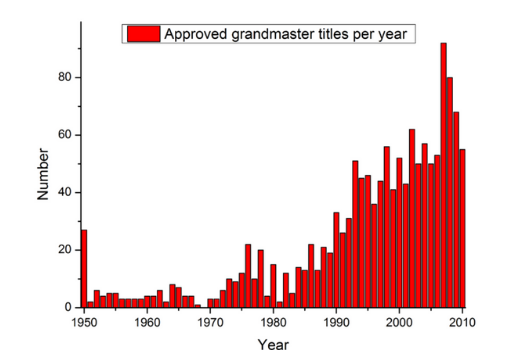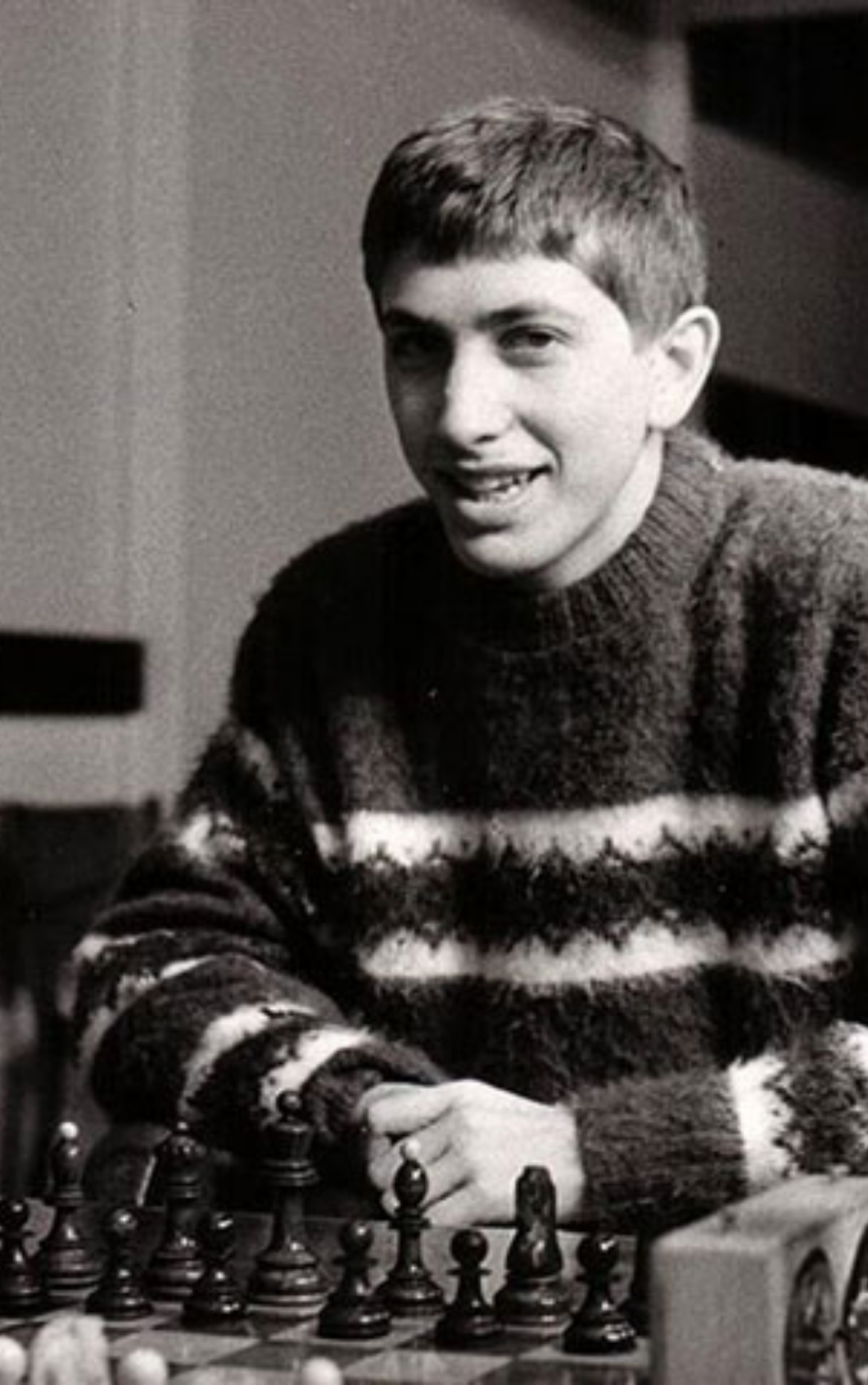Discovering Grandmasters - Who Was Bobby Fischer

How Do You Become A Chess Grandmaster
To become a grandmaster, a player must achieve both of the following:
- An Elo rating of at least 2500 at any point in their career (although they need not maintain this level to obtain or keep the title).
- The rating requirement can be fulfilled even if the player starts a tournament rated <2500 and then reaches or exceeds 2500 during the tournament but concludes the tournament with a rating <2500.
- Two favorable results (called norms) from a total of at least 27 games in tournaments. With some exceptions, to receive a norm in a tournament:
- The player's rating performance at the end of the tournament must be at least 2600.
- At least 33% of the player's opponents must be Grandmasters.
- At least 50% of the player's opponents must hold a FIDE title.
- The player's opponents must have an average rating of at least 2380.
- The player's opponents must come from at least 3 different chess federations, which can include the player's own federation.
- A maximum of 60% of a player's opponents can come from the player's own federation.
- A maximum of 66% of a player's opponents can come from a single federation.


Basics Information On Bobby Fischer
Known as: Bobby Fischer
Born: March 9, 1943
Died: January 17, 2008
Born in: Chicago, Illinois
Died in: Reykjavik, Iceland
Full given name: Robert James Fischer
Quick Intro Into Knowing The Legend
Bobby Fischer was a record-setting chess master who became the youngest player to win the U.S. Chess Championship at 14.
The first American-born player to win the World Chess Championship.
Bobby Fischer first learned the game of chess at age 6 and eventually became the youngest international grandmaster at the age of 15.
He reportedly had an I.Q. of 181.
In 1972, he became the first American-born world chess champion after defeating Boris Spassky.
An eccentric genius, who was believed to have an I.Q. of 181, Fischer became known for his controversial public remarks in his later years.
He was granted Icelandic citizenship in 2005, following legal trouble with the United States.
Learn more about the genius with Chess Universe.

Starting Points For Fischer
Robert James Fischer was born in Chicago, Illinois, on March 9, 1943. Fischer's parents divorced when he was a toddler, and he began learning chess at the age of 6 after his older sister Joan bought him a chess set. He continued to hone his skills as a youngster at the Brooklyn Chess Club and Manhattan Chess Club. Fischer had a strained relationship with his mother, who supported his chess endeavors, but preferred that he pursue other areas of interest.
A brilliant, highly competitive player who lost himself in the game, Fischer earned a place in the record books at age 14 when he became the youngest player to win the U.S. Chess Championship. Then in 1958, at 15, he became the youngest international grandmaster in history by placing sixth at a tournament in Portoroz, Yugoslavia (now Slovenia).

Bobby Fischer and David Bronstein in the Portoroz Tournament, 1958
The Cold War Match
During the early 1960s, Fischer continued to be involved in U.S. and world championship matches but was also making a name for himself with his erratic, paranoid commentary.
After having a 20-game winning streak in the early 1970s, Fischer once again made chess history in 1972 with his defeat of the Soviet Union's Boris Spassky at the Reykjavik, Iceland world championships, thus marking the first time an American chess player had won the title.
Fischer's defeat of a Soviet opponent, which became known as the "Match of the Century," took on iconic proportions in the midst of the Cold War and was seen as a symbolic victory of democracy over Communism. Fischer's historic win also made chess a popular game in the United States.

Bobby Fischer and Boris Spassky in the Reykjavík World Chess Championship, 1972
Controversies Of A Grandmaster
Despite his global popularity, Fischer's controversial behavior became the hot topic for all the wrong reasons.
In the mid-1970s he refused to play Anatoly Karpov, the challenger to his title, and was then stripped of his championship by the International Chess Federation.
Fischer was reportedly homeless for a time in the Los Angeles area, becoming involved with a fringe church.
He also became known for making anti-Semitic remarks despite the fact that his mother was Jewish.
On the 20th anniversary of the famed Fischer/Spassky game, the two met again in 1992 to play a $5 million rematch in Yugoslavia, although travel to the country by American citizens was illegal at the time.
Fischer continued to live abroad for several years to avoid facing criminal charges in the U.S., during which time he continued his anti-Semitic diatribes, and on a radio broadcast he celebrated the 9/11 attacks on the World Trade Center.
In July 2004, Fischer was detained at a Japanese airport for trying to leave the country with an invalid passport and he was jailed for several months.
He was eventually granted citizenship by Iceland and moved there in 2005.
Up Close and Personal
Miyoko Watai, a Japanese women's chess champion and general secretary of the Japanese Chess Federation, claimed that she had married Fischer in 2004, although the validity of their marriage was questioned.
Another woman claimed that she had a daughter with Fischer. His body was exhumed to be DNA tested, and the claim of paternity was found to be false.
In 2011, an Icelandic court ruled that Watai was Fischer's widow and the sole heir to his estate.

Bobby Fischer and Miyoko Watai
Find Out More!
The documentary Bobby Fischer Against the World, directed by Liz Garbus, was released in 2011.
It incorporates interviews with chess players Anthony Saidy, Larry Evans, Sam Sloan, Susan Polgar, Garry Kasparov, Asa Hoffmann, Friðrik Ólafsson, Lothar Schmid and others. It includes rare archive footage from the World Chess Championship 1972.
Liz Garbus began her work on the film after Fischer's death in 2008 at the age of 64.
She said of Fischer:
"It's hard to imagine that in 1972, all eyes were on a chess match, but it does, in fact, seem to be the case. Bobby Fischer was this self-taught Brooklyn boy who took the New York chess scene and then the national chess scene by storm. And the Russians had been dominating the sport for decades. ... So for an American to have a real chance at beating that (Soviet) machine, this was big stuff. ... The symbolism of the match was enormous."




